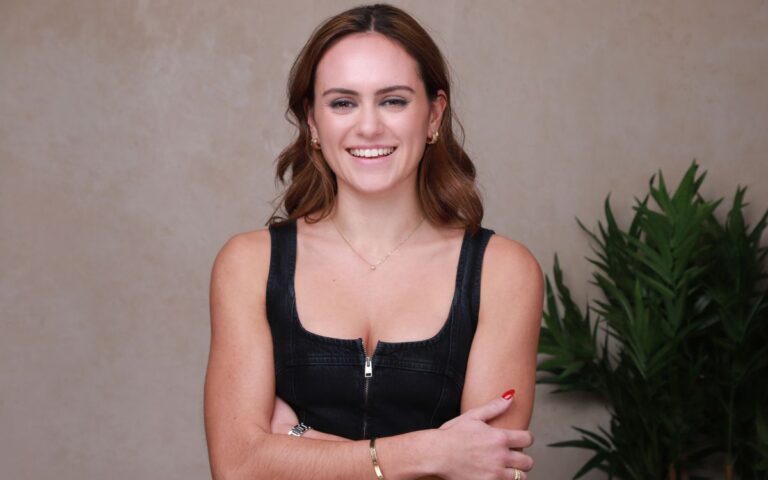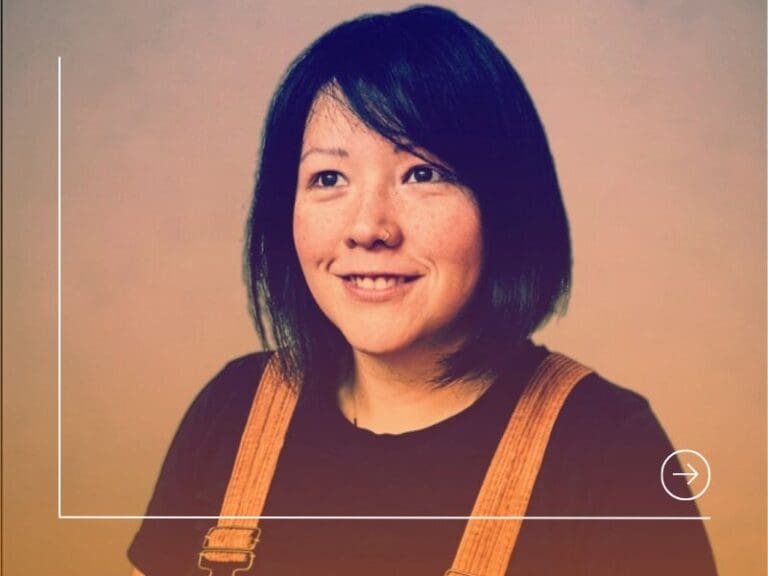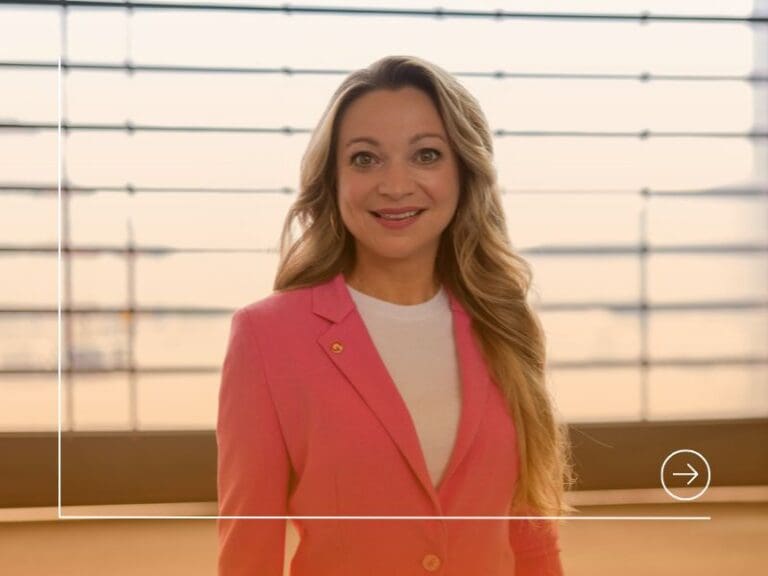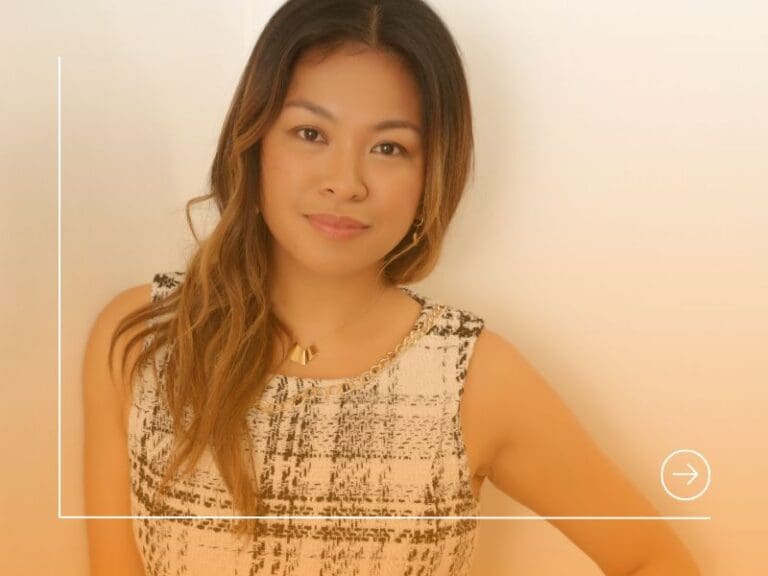Isabella joined inDrive, a mobility and urban services platform operating in 46 countries, in November as Head of Aurora Tech Award after eight years in the venture capital industry.
She remains the founder of “The Day I…” podcast, which shares stories of incredible women’s lives. Isabella is focused on creating infrastructure and networks that support women entrepreneurs, particularly in emerging markets. The Aurora Tech Award is dedicated to empowering women in IT by recognizing and supporting female founders of tech startups. It offers financial rewards, mentorship, and profile-raising support to women tech founders to help them grow their businesses.
How did you land your current role? Was it planned?
In all honesty, this is the first role I’ve ever planned. Up until now, my career consisted of a series of unplanned opportunities with no specific goal outside of ‘perform at work.’ But then, two years ago, I realised I needed a real purpose behind what I was spending 8+ hours of my day doing and I wanted to work in my area of ‘genius,’ on things that come naturally to me and create value for others.
It all started with me reaching out to recruiters, telling them I wanted a job with the trifecta, “people, purpose and profit.” What that meant was working with exceptional and passionate people towards an impactful goal while building a real business. Let’s just say it didn’t exactly land with the recruiters I was speaking with, and I’m not sure they knew what I was asking.
The other important thing to mention is that I’ve always had a vision around building infrastructure for women. I always knew that I wanted to contribute something in that space. When I say infrastructure, I mean, “If the table isn’t built for you, build another table.” I don’t want women to wait around for the behaviour of others to improve; I want them to just go for it and build the reality or the business they want.
Long story short, after I’d basically given up looking for a role I cared about and resigned myself to an unfulfilling career, inDrive landed on my desk with this incredible role as Head of the Aurora Tech Awards. It’s literally everything I had been looking for (and I’m pretty sure I somehow manifested it!).
What are the key roles in your field of work, and why did you choose your current expertise?
This might be unpopular with some, but I’m a generalist through and through. I studied law, then realising it wasn’t for me, ended up joining a legal-tech company. In my first year and a half they grew from 20 or so people to over a 100. At that time I had the role of ‘Ecosystem Manager.’ My job was to be anywhere and everywhere there were early stage founders in London, listen to them and create value whether that was through events, blogs, webinars, product developments or something else. This grew into a BD/Growth role where I was dealing with a lot of the ecosystem players like VCs and accelerators, partnering with them to get access to their founders.
I got head hunted to the investor side of the table, joining Wayra, a CVC, as Head of Marketing. This role was once again about learning how to position ourselves amongst founders, investors and industry experts and build genuine relationships with them. My role included everything ranging from events, branding and content to partnerships and management. I learned a lot and loved it.
I also continue to host a podcast called, “The Day I…” where each episode is one woman answering one question, “Tell me about a day you truly backed yourself.” The goal is simple: share ordinary, relatable moments of bravery because sometimes the smallest changes can lead to the greatest outcomes.
I think that I only really realised in the last two years that what I’m really good at is listening to our audience, understanding what they need and bringing in the right people and tools to make things happen. Now with Aurora, I’m leaning into that: being a generalist and being someone who connects well with people. That’s also why inDrive’s mission of challenging injustice resonates so deeply with me; it really aligns with my belief in amplifying voices and creating meaningful change through impactful actions.”
Did you (or do you) have a role model in tech or business in general?
Grace Beverly, founder of TALA, Shreddy and most recently Retrograde is the one. She is such a role model for getting out of her own way and building some exceptional businesses at such a young age. What I love about her is that she has an amazing track record. In today’s world, there’s so much noise that it’s hard to know who to listen to. But with Grace and her three thriving businesses, you know when she says something, it’s legit.
What are you most proud of in your career, so far?
I’m really proud of my previous team outgrowing me. I’ve had the privilege of working with some exceptional people who simply needed someone in their corner, a cheerleader. I’m far from perfect, but I’d like to think that I played some small emotional part in getting them to believe that they really can achieve anything and they have
What does an average work day look like for you?
I either start or end my day with sport, whether it is cycling, swimming, running or padel (I’m in a triathlete phase). Most days I start by planning with Grace Beverly’s productivity method planner, which I highly recommend. I do deep work-like research, braindumps or strategy in the morning before a block of calls that tend to run into the afternoon. After that I’m pretty useless on anything that involves critical thinking, so I aim to do the manual or admin bits then. I usually have dinner with my partner (he tends to cook as it’s not my thing). Unpopular opinion, but I genuinely love going to bed early..
Are there any specific skills or traits that you notice companies look for when you’re searching for roles in your field?
I think more than skills, having a personal brand and a network always makes you stand out. If I didn’t have the relationships I do alongside the podcast, I doubt I’d be Head of the Aurora Tech Awards now. We live in a social world. Perhaps it’s sad, but if you’re not sharing the work you’re creating and the knowledge you have, a prospective company is going to have a much harder time knowing about it. I also think having a following on social media translates into distribution and awareness, which in a lot of cases in this world of tech and entrepreneurship means something.
Has anyone ever tried to stop you from learning and developing in your professional life, or have you found the tech sector supportive?
I had a manager once say that, “I should be happy with what I have,” when I asked for a raise. He’d explained that when he was my age, he’d had less and therefore I should be grateful. There was no founded or performance-related reason for which I didn’t deserve a raise other than my age. The joke is on him because I got headhunted by Wayra and ended up earning double my previous salary. I think the lesson for this is that if you don’t dream for yourself and set big goals, no one else will. Call it ‘delusional confidence’ if you’d like, but it works.
In terms of the tech sector itself and your career generally, if you have a good manager cherish them because it makes life and learning so much easier. However, they are rare to find, so often you do need to be your own cheerleader and guide because few people will do that for you. That’s not singular to tech; I think that’s just professional life.
Have you ever faced insecurities and anxieties during your career, and how did you overcome them?
100%. There’s always the question of “Am I doing a good job?” Often I’ve had roles with really long feedback loops that are all about consistency (e.g. building a community, developing partnerships, positioning a business.) And when you don’t have a manager telling you whether you’re on track or how to improve, it’s so easy to constantly feel like you’re bluffing your way through your career. The funny thing is, the more I work, the more I realise that most people feel the same way. I think with most things, you never know how everything will turn out, so you have to take an educated guess and try.
Also, for any younger people in senior roles – feeling too young is definitely an insecurity I’ve battled. It’s important to remember though that at the end of the day, your work speaks for itself. I would focus on delivering and letting that determine what others think of me and my work.
Entering the world of work can be daunting. Do you have any words of advice for anyone feeling overwhelmed?
When I was at university, I wish someone had asked me, “What are you naturally good at? What is an energy creator/drainer?” The reason I say that is because the earlier you think about and understand what you actually enjoy, the quicker you can find the right fit. I think for a long time I let life happen to me, rather than making it happen intentionally. If you enjoy something, lean into it, share your work, connect with a network. There is no one career and it’s ok to believe that. If you don’t know what you want, then the best way to realise what you like is to do what you don’t like, meaning try different things.
What advice would you give other women wanting to reach their career goals in technology?
Don’t get in your own way. It’s easy to blame everyone else for everything you don’t have or are not achieving. I know some exceptional women and it blows my mind to think that in so many cases, the reason we don’t get things is because we are our own worst enemy. Whether that’s overthinking a decision or an application and not sending it at all – not doing the thing they’ve been talking about doing forever and missing the boat, letting someone else take up more space than they need in life, feeling guilty. All of that, all of those things are just slowing women down. You start thinking you can’t do it or you shouldn’t do it and it’s a self-professing prophecy. You literally make the worst outcome materialise by just not going for what you want. In all honesty, I still overthink things all the time, so I know it’s easier said than done. But the quicker you can get over it, the better off you’ll be.








